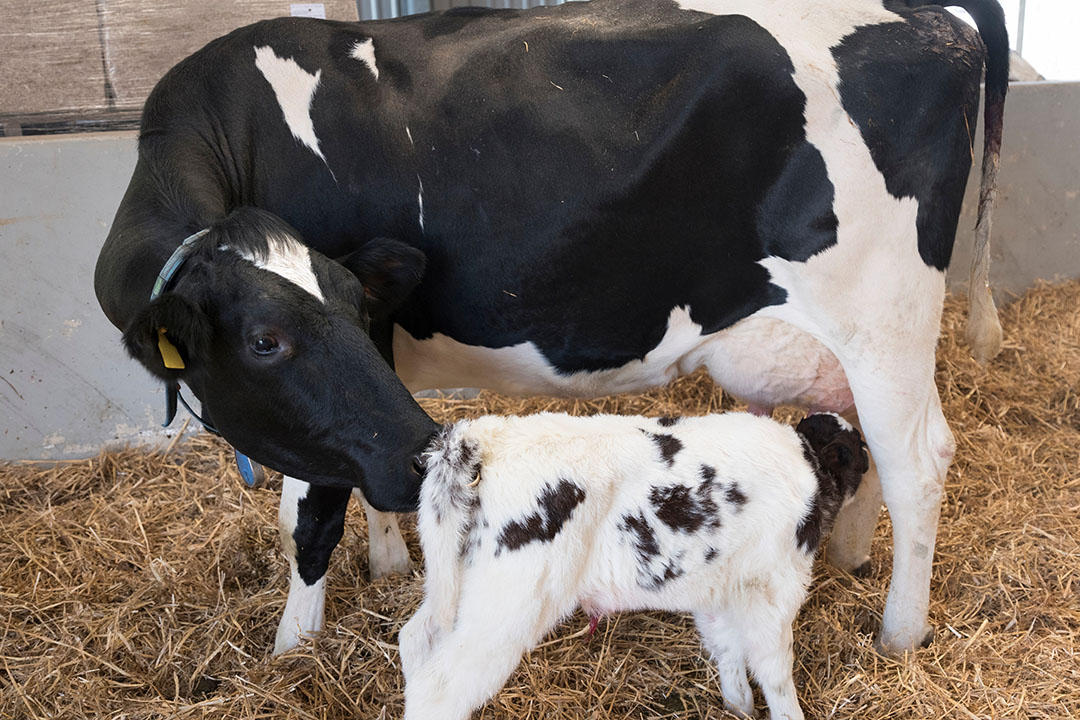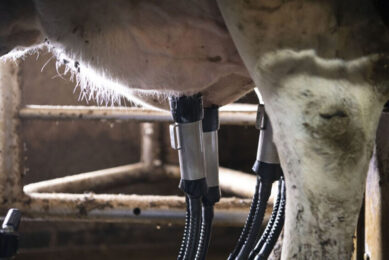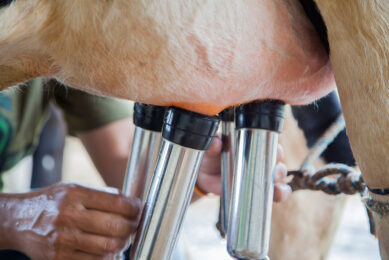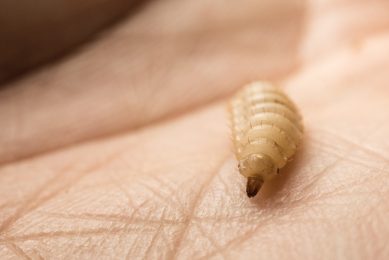Boosting dairy cow reproduction

A dairy cow trial, based in France, has revealed significant reproductive and performance benefits when the animals’ daily feed rations were supplemented with a yeast probiotic, an approach which boosts both conception rates and milk yields.
Negative energy balance and systemic inflammation during the calving period both have serious long-term effects on dairy cows, often being a key factor in future reproductive failures. Both issues contribute to cows suffering extended conception intervals, long term breeding problems and decreased milk production. As such, they’re also widely recognised as two of the main factors behind rising culling rates, contributing hugely to current dairy farm losses.
Benefits of focusing on rumen health
Improving rumen health during the transition period, therefore, should have a beneficial effect on cow health in general, while also boosting milk yields and quality. In this context, supplementing dairy cow diets is a crucial part of combatting the dangers attached to negative energy balance in cows, leading to improved conception rates, benefits which have been proven by trial data.
It has been shown, for example, that the yeast probiotic, Actisaf, can help to improve reproductive performance (Julien et al. 2018), by reinforcing a dairy cow’s general status. This is the headline conclusion of a long-term study carried out on a French dairy farm in which the impact of using Actisaf as a dietary supplement was assessed across 123 Holstein dairy cows. The supplement was given as part of the daily diet for the 123 milking cows, covering many different stages of lactation.
Effects monitored on each cow
Breeding and milk production data was collected for all 123 animals, with assessments being made for each individual cow, throughout the study period. The supplementation period covered one complete year, during which all lactating cows in the herd received Actisaf at a recommended dose of 5g/cow/day, mixed into their daily ration.
Study data, covering 2 successive milking cycles, was then compared to a ‘control’ reference period. This was based on the herd’s results for a previous year, when no probiotic supplementation was given.
Improved reproductive performance
Trial results showed that Actisaf had a strong, beneficial effect on reproductive performance, with the herd requiring a significantly lower number of inseminations to achieve pregnancy, 3.46, for the trial period versus 4.02 (p<0,01) for the control, see Figure 1.
In addition, the Acisaf supplemented cows showed a reduction of both calving to conception intervals – 134 vs 146 – and calving interval – 425 vs 444. Actisaf supplemented cows also achieved an overall increase in milk production of an average of 3.3 litres per cow per day (+ 27.6 vs 24.3), see Figure 2.
Economic and performance benefits
The conclusion was that optimising the diet with Actisaf not only improved milk production per lactation but also boosted reproduction success rates, as expressed by both increased conception rates to 1st service and fewer days lost prior to conception. These results confirm the benefits recorded by using Actisaf in dairy cows as previously published by Julien et al., 2018.
In summary, it was shown that Actisaf may contribute to a reduction in the number of replacements required, due to the extended longevity of the existing cows.
The return on investment (ROI) from using Actisaf, as recorded during the study, was 1:6. This was calculated by taking consideration of the cost of the supplementation against the added value of the extra milk produced and the reduced cost of needing fewer artificial inseminations. The improved ROI demonstrated that by boosting both milk and reproductive performances, Actisaf led to in turn to enhanced economic benefits and herd profitability.
Author: Mohamed Mammeri, Global Product Manager, Phileo by Lesaffre






